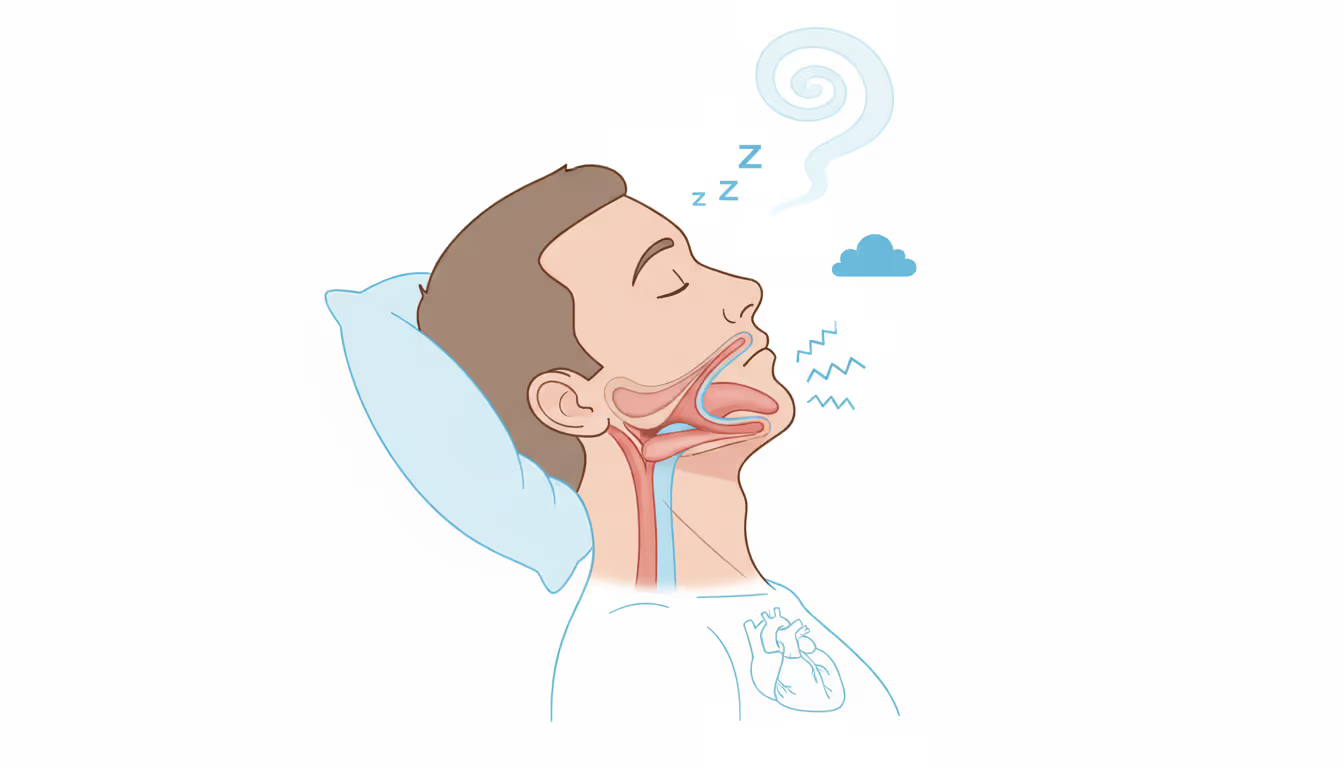
Sleep apnea refers to the brief cessation of breathing during sleep, often leading to excessive sleepiness during the day. The term originates from Greek, meaning "lack of breath." The most prevalent type is obstructive sleep apnea, where relaxation of the muscles around the base of the tongue and uvula blocks the airway. This blockage causes a drop in blood oxygen levels, increases heart strain, raises blood pressure, and prevents the person from reaching the deep, restorative stages of sleep. Essentially, sleep apnea disrupts quality sleep.Symptoms of obstructive sleep apnea include loud snoring or irregular snoring patterns with pauses and gasps. Other signs are excessive daytime fatigue, memory issues, depression, and irritability. In some individuals, sleep apnea may contribute to conditions such as high blood pressure, heart problems, and other health issues.This condition commonly affects middle-aged men and can occur in women as they age. Factors like alcohol consumption, sleeping pills, and tranquilizers taken at bedtime can worsen obstructive apnea. Sleep labs are now available to monitor sleep stages, diagnose sleep apnea, identify its type (obstructive or central), and assess severity to develop a treatment plan. General treatment measures include weight loss, avoiding alcohol and sedatives, sleeping on one side, and medications to alleviate symptoms.Continuous Positive Airway Pressure (CPAP) is an effective treatment, involving a mask worn over the nose during sleep, with gentle air pressure to keep the airway open. Different patients require various mask sizes and pressure levels for optimal results. Another treatment option is surgery, specifically a procedure called Uvulopalatopharyngoplasty (UPPP), where a surgeon removes excess soft tissue from the throat to clear the obstruction.For more information, see: CPAP.




